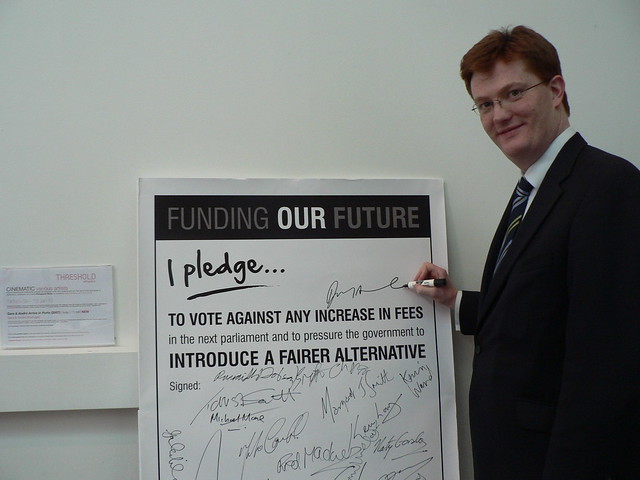Let me say upfront, the vast majority of debate in the referendum campaign – whether online or offline - has been good natured. Sometimes it has been heart-felt, sometimes robust, and sometimes tough questions are asked. But it has been, in the overwhelming majority, respectful and has maintained a remarkable level of decorum. It is possible to be passionate without rancour, and this debate and campaign has predominantly been just that.
Criticism does not equal abuse
Let me also say this: some people will always try to paint any criticism, critique, or questioning of their position, however respectfully addressed, as “abuse”. It’s a pity, but if you can review your argument with pride, there’s nothing to worry about.
However, there is a small minority on both sides of the debate who cross the line from passion into personal abuse. And there is an undeniable culture of misogyny in some of that abuse. This is not confined to the referendum campaign, nor is it confined to cyberspace, but it is something that women in public discourse are subjected to.
Twitter is the public sphere
And let us not be under any illusions: your postings on Twitter are public discourse. They are not a private chat with your mates in someone’s kitchen. They are public utterances, and they can and will be used to try and paint the campaign you espouse in a certain light. You need to remember that you represent a campaign; your conduct affects us all.
Misogyny
So what am I talking about? Some people – a very few, but they exist – seem to think it’s OK to respond to women with whom they disagree by calling them a “bitch”, a “whore”, a “slut” or even a “cunt”. It is not OK. Not even a bit. It doesn’t matter that you call your male friends those things. It isn’t just “part of the knock-about nature of debate”. It denigrates women. It is unacceptable abuse. And it negates any valid point you may have had.
I have also seen comments about women’s appearance. Again on both sides – “she’s ugly”, “she’s fat”, and so on. It’s unacceptable, whoever it’s aimed at.
By using these terms, these themes, you are damaging all of us. You are letting down your side, whichever side that might be. So don’t do it.
If you are in any doubt as to whether your tweet might be construed as misogynist, don’t send it.
Nazi smears
Nor is it just misogyny. We don’t like it when people in the No camp liken the Yes campaign to Nazis. And this, incidentally, isn’t just at the fringes, but often comes from people right at the top of the No campaign. I saw tweets from Blair McDougall advertising James MacMillan’s ludicrous article which smeared Yes artists as like Nazis as a “must read”. We have heard the audio of Alistair Darling agreeing with a journalist’s description of the Yes side as “blood and soil” nationalists. He had the opportunity to disagree, but didn’t; he said that’s what they were “at heart”.
But how can we complain if some among us respond in like? If some among us use Nazi era terms like “Quisling”, or liken people to Goebbels, or deploy any hyperbole that allows them to paint us all as intolerant and extreme?
It doesn’t matter who started it. Which tweet do you think the press will pounce on?
Agent provocateurs
And that brings us to another matter. How easy would it be for me to open a new Twitter account, badge-up with a Better Together Twibbon, and set out to discredit the No campaign? Extremely easy. Don’t you think the state has thought of that? We know that special branch and MI5 agents go under cover and infiltrate political movements. Look at the Mark Kennedy/Stone scandal. We know it happened during the miners’ strike, during the anti-poll tax movement. It would be remarkable if, during this time that the British state itself is under threat, they weren’t doing it now.
And the social media makes it much easier for agents to go under cover, and engage in
agent provocateur activity.
No, not all of the fringe idiots flinging misogynist abuse are
agent provocateurs, but let us be quite clear: the effect is the same. If you do it, you damage the whole movement, and you might as well be working for MI5.
Keep it positive
The confines of 140 characters make it hard to make your point concisely; the ability to click and send without thinking, and the anonymity of the net makes it easier to issue abuse you wouldn’t use face to face. But that should be our rule – if you wouldn’t say it to someone’s face, don’t say it.
I’m not talking about being squeaky clean prudes who never utter a word in anger. If you’d say “up yours” to George Osborne’s face on budget day when provoked by attacks on working class people, then of course you can say it on Twitter. I did. Just don’t stand by when others are besmirching the movement with their misogynist tirades.
Like the vast majority of us do, keep it positive, keep focussed on the issues, and remember that they’re going to use all the dirty tricks they can. Don’t fall into their traps.

